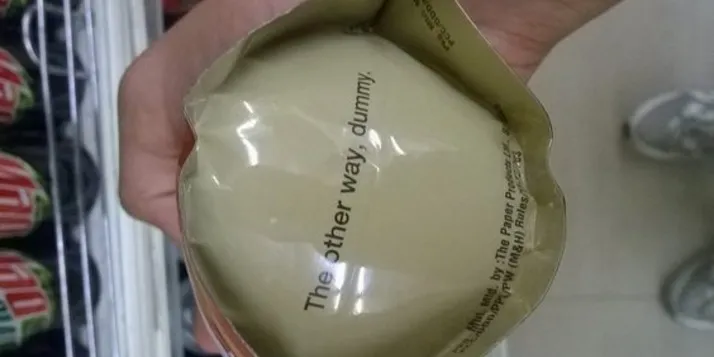

PaperBoat- Unleashing the Child in You
"Entrepreneurship is not about ideas, it’s about making ideas happen".A perfect start up proving the validity of this quote would be "Paper Boat".Here's the success Story of Paper Boat- "Drinks and Memories" !!
It is said that “Entrepreneurship is not about ideas, it’s about making ideas happen”. Neeraj Kakkar, Ex Coca-Cola employee and MBA degree holder from prestigious B-schools like MDI, Gurgaon and Wharton Business School, always had a belief that he can work upon his ideas and create something big. With dominance of Coca Cola and Pepsi in the Indian Beverage industry many wouldn’t even dream of entering this industry, whereas it was Neeraj’s sheer determination and passion for beverages that he started a venture called Paper Boat in August 2013. What started as a startup back then is all set to create a revolution. Let’s see the success story of Paper Boat- “Drinks and Memories”.
Some Facts about the company
• Paper Boat is a Product of “Hector Beverages”- which also produces Tzinga (Energy drink)
• Paper Boat raised funding from top investment firms which included Narayana Murthy led- Catamaran Ventures, Footprint Ventures and Sequoia Capital
• In July 2015, the Paper Boat brand was valued at $100 million
• Currently Paper Boat has two Manufacturing plants, one in Gurgaon(Production capacity – 80 units / min)and the other one in Mysore (Production capacity – 380 units / min)
• The company is likely to add one more production line at Mysore plant which would increase the production capacity from 380 units / min to 780 units/ min
• Currently, PaperBoat has 12 drinks and their R&D team is working on developing 35 to 40 products in future
• The company sells around 8 million units per month with top seven cities accounting for 80 percent of sales
• Paper Boat is currently sold through 1,00,000 retail points and the company aims to double it in a year’s time
• Apart from India, Paper Boat is being sold in countries like Dubai, Malaysia, UK and US.
Key Success Factors for Paper Boat
Indian Traditional Ingredients
Paper Boat does not use any preservatives and each drink they produce has some functional benefits attached to it. Paper Boat drinks are not only tasty but healthy as compared to carbonated drinks.The company is manufacturing drinks which were lost somewhere in the past because all of us got busy in our lives and we lack time to produce them ourselves. Having said this, the company is basically targeting people who miss their childhood and the traditional drinks they used to consume. Hence Paper Boat believes in “Making people taste memories”. It is the only brand offering such varied ethnic flavors to its customers.
Innovation
Paper Boat has been constantly innovating its product which is evident from the fact that within two years they have launched more than 10 flavors. Started with Aam Panna and Aamras back in 2013, Paper Boat is currently offering 12 flavors to its customers including Ginger Lemon tea, Jaljeera, Kokum, Jamun etc.
Hedonic Value for its Customers
Paper Boat has been able to build an emotional connect with its customers. Therefore Paper Boat drinks are not just another beverage product for the customers but a medium to express and revive their childhood memories. The company has been smart enough to convert a utilitarian good to a hedonic good through its Marketing and Advertising.

Continuous customer engagement
The marketing team of Paper Boat has been very efficient and responsive. They are in constant touch with their customers through social networking pages be it Facebook, Twitter or Instagram. Not only do they respond timely to their customers’ queries but invite them to share their memories which are later published on various social networking pages. Though it’s a small thing to do but it definitely engraves a positive brand perception in the minds of customers and hence increases the brand loyalty.
Strong Distribution Hold
Paper Boat is currently sold through 1,00,000 retail points and the company aims to double it in a year’s time which is as par the industry standards for beverage products. Also Paper Boat follows Differential Pricing Model i.e. selling the same product for different price at different places and hence catering to all segments.
Normally a 250ml pack would be sold at Rs30 if you buy from a retail store, however if you buy at an Airport or In-flight it would be sold at Rs70. This differential pricing is followed in order to give higher margins to the distributors and make the product available across all channels. This increases the visibility as well as the reach of the product.
Packaging
Paper Boat has put a lot of time and investment in deciding the correct packaging for their product. Though the pouches are not recyclable, they have a 10% lower carbon footprint and generally lower overall environmental impact than Glass, Tetra pack or PET bottles. Moreover they are lighter and more compact which also helps the company save the fuel cost for transportation.
Apart from Operational and Financial benefits, Paper boat has found another way to promote their product. Recently, there was a lot of buzz about “somebody discovering content written at the bottom of Paper Boat’s pack”. It was shared across various social networking sites and it went viral because it was never advertised by the company, it was discovered by the customers. This created a lot of anxiousness among the customers and a sharp rise in sales was observed.

Recommendations for the Future
Avoid falling into Icarus Pardox
Icarus Paradox refers to the “phenomenon of businesses failing abruptly after a period of apparent success, where this failure is brought about by the very elements that led to their initial success”.
Paper Boat’s strength lies in its marketing and the hedonic need they have been able to generate in all these years. The company should constantly innovate upon its marketing strategies so as to prevent its customers from falling into monotony. Take for example: Coca cola started with a slogan of “Drink Coca –cola (1886)” which was transformed to “Delicious and Refreshing (1904)” and is currently promoting “Open Happiness”. Doing so, a company ensures that its customers don’t get over dosage of a single message and it doesn’t hamper the brand perception.
Focus on Quality
Quality is of prime importance when it comes to Beverage products. Paper Boat should ensure that it maintains the utmost level of cleanliness and quality check standards in its manufacturing units. In a beverage industry, which is considered to be fragile, a small error here and there can destroy the brand image of the entire company. Paper Boat products are well known for their quality and there should be no trade off between increasing sales and quality what so ever may be the reason.
Evolve with Changing Customer Needs
It is of prime importance that a business evolves with time. Paper Boat should ensure that they are able to capture the changing customer needs (which can happen only after conducting market research surveys) and hence evolve their business accordingly.
As quoted by Mahatma Gandhi “A customer is the most important visitor on our premises. He is not dependent on us. We are dependent on him”. Hence it is very important that Paper Boat provide its customers with the right product and matching exactly to their expectations. Every customer needs the “value for money” and the company should ensure to provide them with that.
Conclusion
Paper Boat has shown a promising growth over the years. The association of its products to “childhood memories” has worked well for the company so far. With its Constant Innovation, Strong Distribution hold and Attractive Packaging Paper Boat is all set to gain a lucrative market share of Indian Beverage Industry.
Paper Boat is competing with non-branded products and it would be interesting to see whether consumers will pay a premium for their products. There are many Indians, especially in tier 2- 3 cities who still make these drinks at home.
Will Paper Boat with its Attractive Packaging, Engaging Social Media Marketing and Appealing Advertising be able to capture this market segment or will it continue with its dream run only in big cities, is the question only time will address.





